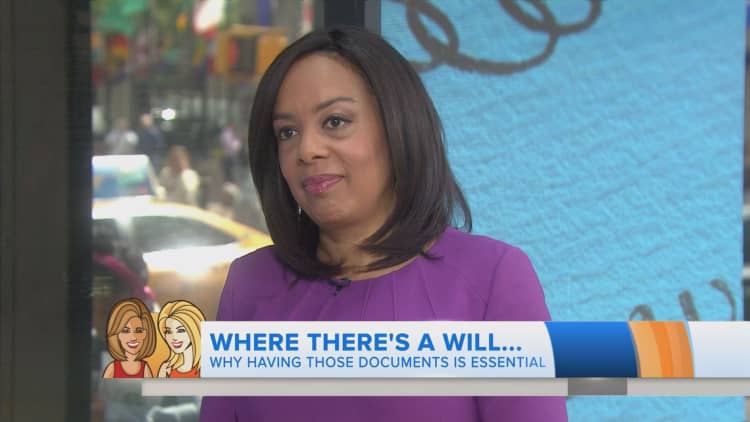
Prince shocked estate planners everywhere when it was revealed after his death that he didn't have a will.
The Purple One was not alone. Only 42 percent of U.S. adults have a will, according to a survey by Caring.com, a website for family caregivers.
The top reason people gave for slacking off when it came to estate planning was that they "just hadn't gotten around to it," according to the survey of 1,003 adults conducted in late January.
That excuse may cut it if you are a seven-time Grammy winner, but for the rest of us, you probably need to at least have a will. Here are three steps to take to make life easier on your heirs:
Write your will already
"Creating a will is not that fun. It's one of those things on the to-do list. And people would rather watch football," said Katie Roper of Caring.com. "But if you have minor children and you don't have a will, you need to get one."
- With simple estates, you can find free templates of wills online and just get them notarized.
- For a little more hand-holding, online legal services such as Avvo and LegalZoom provide brief consultation services with estate lawyers for prices ranging from $40 to $80.
- If you have complicated holdings, look for an attorney who specializes in wills and trusts through the National Association of Estate Planners and Counsels and American College of Trust and Estate Counsel.
Whatever option you choose, make sure your heirs know how to locate your will after your death, Roper said, otherwise a probate court could be divvying up your assets.
Create a living will and a medical power of attorney
A living will is a separate legal document that states whether or not you want life-sustaining treatment if you're incapacitated and can't make decisions on your own. Your medical power of attorney gives someone the legal right to make those decisions.
Caring.com found that 53 percent of Americans have granted someone legal authorization to make decisions on their medical care if they are unable to do so.
For parents, they will need a medical power of attorney for their children over age 18, Roper said, so they can discuss their kids' conditions with hospitals and health-care staff.
Update your beneficiaries
Check your bank, brokerage, insurance and retirement plan accounts to make sure your beneficiaries are up to date. You want to ensure that your assets go to the right people.
"Taking an inventory of all the accounts you have is a great place to start," said Mike Lynch, vice president of strategic markets at Hartford Funds.
After you taken that inventory, you may want to consolidate accounts to save on costs and make it easier for you and your heirs to manage your assets, he said.
More from Your Money Your Future:
When you need life insurance in your 20s and 30s
Learn from Johnny Depp's money disputes
This is the biggest problem plaguing older Americans today






